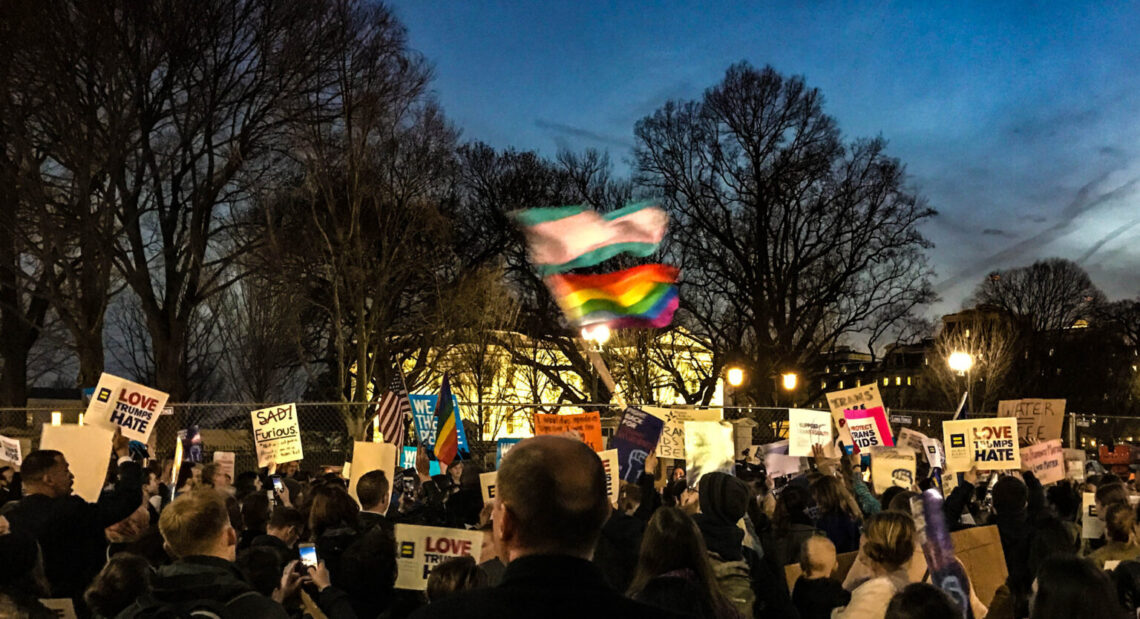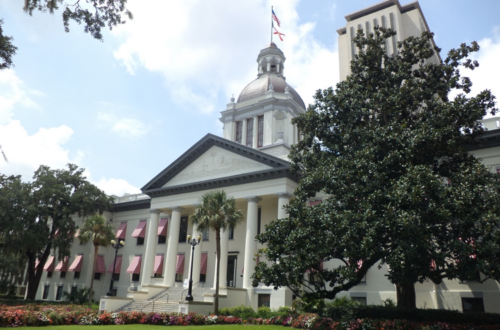After months of nationwide controversy and loud cries for the protection of students in the LGBTQ+ community, the Florida Senate passed the Parental Rights in Education bill. This bill, dubbed as the ”Don’t Say Gay” bill, will prohibit discussions in primary school classrooms about sexual orientation and gender identity.
This Republican-led bill passed the House and passed once again by the Senate, mostly along party lines.
Supporters argue the sole purpose for its enactment is to empower parents in their choices on how to educate their children. This is exemplified in the bill’s provision that grants parents declaratory and injunctive relief against a school district that violates it in any manner.
Sen. Dennis Baxley, R-Sumter County, who introduced the bill, argues it is a way to refocus Florida’s school system on training children with skill sets they will need to succeed in the future rather than socializing them. This would mean refraining from speaking about social issues such as gender identification and sexual orientation.
However, critics have argued this bill will make public schools hostile environments for students who identify with the LGBTQ+ community.
Dr. George Wallace, the CEO of The Center in Orlando, an LGBTQ+ activism and nonprofit organization, is one of said critics.
The first person Wallace told he was gay to was his high school teacher, someone he felt safe around and trusted. “Under this dangerous bill, I am fearful teachers will no longer be able to talk openly and honestly with their students,” Wallace told the Florida Political Review.
He asserted students need safe spaces, and in many cases schools serve as their first or only option for such an outlet. “This legislation will make teachers fearful of providing a safe and inclusive environment, which could be extremely harmful,” Wallace said.
The bill requires teachers to divulge to students’ parents any information or “critical decision” that might affect a student’s well-being. As such, it has created the fear that students might not be able to confide in their teachers anymore, especially about their sexual orientation or gender identity.
Such a concern was brought to the Senate floor by Sen. Shevrin Jones, D-Broward County, in a Senate meeting on Feb. 8. Jones asked Baxley whether a student’s sexual orientation or gender identity would be considered a critical decision to a student’s well-being that would engender the need to notify their parents. Baxley believes it is.
Critics of this bill argue this would effectively break students’ trust in their teachers and create a harmful environment for LGBTQ+ students. Those who previously felt safe confiding in their teachers about such matters might not feel the same anymore as such information would no longer be confidential.
The permissiveness of the language of the bill is also called into question due to its flexibility for varying interpretations.
The bill explicitly states that school districts are prohibited from discussing sexual orientation or gender identity in primary grade levels. However, it adds that such discussion will also be prohibited if it occurs in a manner that is “not age-appropriate or developmentally appropriate for students,” which can create grounds to expand the scope of the bill to further grade levels.
In the same Feb. 8 meeting, Jones asked Baxley if he was concerned this could be misinterpreted and consequently bar teachers from having these conversations even if they are “age-appropriate.”
To this, Baxley responded he has verbally emphasized this restriction will strictly apply to students from ages 3 through third grade. However, this specified age range is not written in the bill, allowing for broader interpretations.
Supporters of this bill argue it will not prohibit students from having private conversations with their teachers about sexual orientation and gender identity as it is intended to deal only with the school districts’ curricula, agendas and procedures. Yet the bill’s text makes no mention of a curriculum, but it explicitly mentions conversations and makes it clear that such discussions are in fact prohibited.
Jones also raised the question of what a teacher should do if a student asks them about such a topic, to which Baxley responded the teacher should say, “Ask your mother.” He contends this bill is strictly about the agenda of the school and not such conversations.
This bill has created national outrage, including disapproval from the White House.
Press Secretary Jen Psaki relayed President Joe Biden’s criticism of the bill, stating it was discriminatory against the LGBTQ+ community. Psaki deemed the bill as a gateway for “misinformed hateful policies that impact children.”
The last step in this long journey is the approval of Gov. Ron DeSantis, R-Florida. However, DeSantis has already voiced his disapprobation of the discussion of gender identity in classrooms.
If DeSantis signs the bill, it will be put into effect on July 1. However, mounting protests suggest that even with the passing of this bill, Floridians will continue fighting against it in the name of anti-discrimination.
Check out other recent articles from Florida Political Review here.
Featured Image: A protest against the Florida “Parental Rights in Education” Bill. Unmodified image by Ted Eytan used under a Creative Commons license. (https://bit.ly/3tfXRFd)





